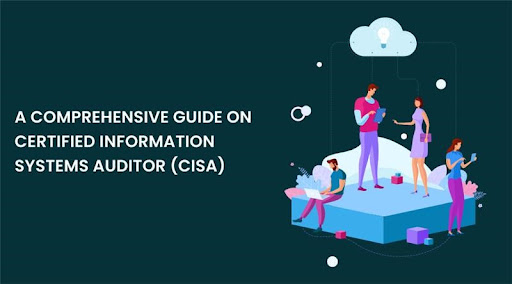Cybersecurity and information system audits have become critical for firms in today’s fast-changing digital world. The CISA Certification is recognized globally as a top-tier qualification for those seeking to enhance their knowledge and proficiency in information systems auditing, control, and security. In this blog, you will learn What is CISA certification, its benefits, and how to become a qualified auditor.
Table of Contents
- What is CISA?
- Steps to Become a CISA
- Benefits of CISA
- Conclusion
What is CISA?
The Information Systems Audit and Control Association (ISACA) offers the CISA certification recognized worldwide. It confirms a person’s knowledge and skill in auditing, regulating, and assuring information system security. CISA-certified individuals have the knowledge and skills to detect vulnerabilities, analyze risks, and implement effective control mechanisms to safeguard an organization’s important information assets.
Steps to Become a CISA
- Meet the eligibility requirements: You must have at least five years of professional work experience in information systems auditing, control, or security to be eligible for the CISA certification. However, certain substitutes and exceptions may apply based on education and experience. For more information on eligibility requirements, see the ISACA website.
- Prepare for the CISA test: The test comprises multiple-choice questions meant to examine your knowledge and comprehension of information system auditing, control, and security. ISACA offers study resources, review courses, and sample examinations to assist you in your preparation. Set aside enough time to study and utilize accessible materials.
- Register for the test: Once confident in your preparation, go to the ISACA website and register for the CISA test. Choose an appropriate exam date and venue. The exam is primarily given at Prometric testing sites worldwide.
- Take the CISA exam: Arrive early at the testing site on the day of the exam, ensuring you have the proper identification documents. The exam comprises multiple-choice questions and lasts for four hours. Prioritise time management and carefully read each question before responding.
- Exam results: Immediately following the completion of the exam, your results will be sent, showing whether you passed or failed. You will receive a score report if you pass, and if you fail, the report will emphasize your performance in each exam domain to help you discover areas for growth.
- Application for certification: After passing the CISA exam, you must apply for certification. You must demonstrate the requisite job experience in your application. ISACA will assess your application and notify you once it has been approved.
To keep your certification, you must complete continuing professional education (CPE) credits and follow the ISACA Code of Professional Ethics. Individuals can earn CPE credits by engaging in activities such as attending conferences, webinars, and writing articles.
Benefits of CISA Certification
- CISA certification opens the door to many options in information systems auditing, including roles such as IT auditor, security consultant, and risk management specialist. It indicates your dedication to lifelong learning and professional growth, making you a valuable asset to potential employers.
- CISA is recognized and acknowledged worldwide, providing a competitive advantage in the employment market. The certification validates your knowledge of information systems auditing and makes employers trust your abilities.
- CISA-certified professionals sometimes fetch greater compensation than non-certified colleagues. The certification validates your expertise in a high-demand subject, making you eligible for improved career opportunities and higher pay.
- ISACA, the association behind CISA, has a large network of information systems auditing and security specialists. ISACA membership provides possibilities for networking, information exchange, and professional development through events, conferences, and online forums.
Conclusion
Being a Certified Information Systems Auditor (CISA) is a noteworthy achievement for professionals in information systems auditing and security. The qualification provides various advantages, including expanded professional prospects, global recognition, and earning potential. By following the steps in this thorough guide, you may begin your road to becoming a CISA-certified expert and contributing to safeguarding key information assets.




